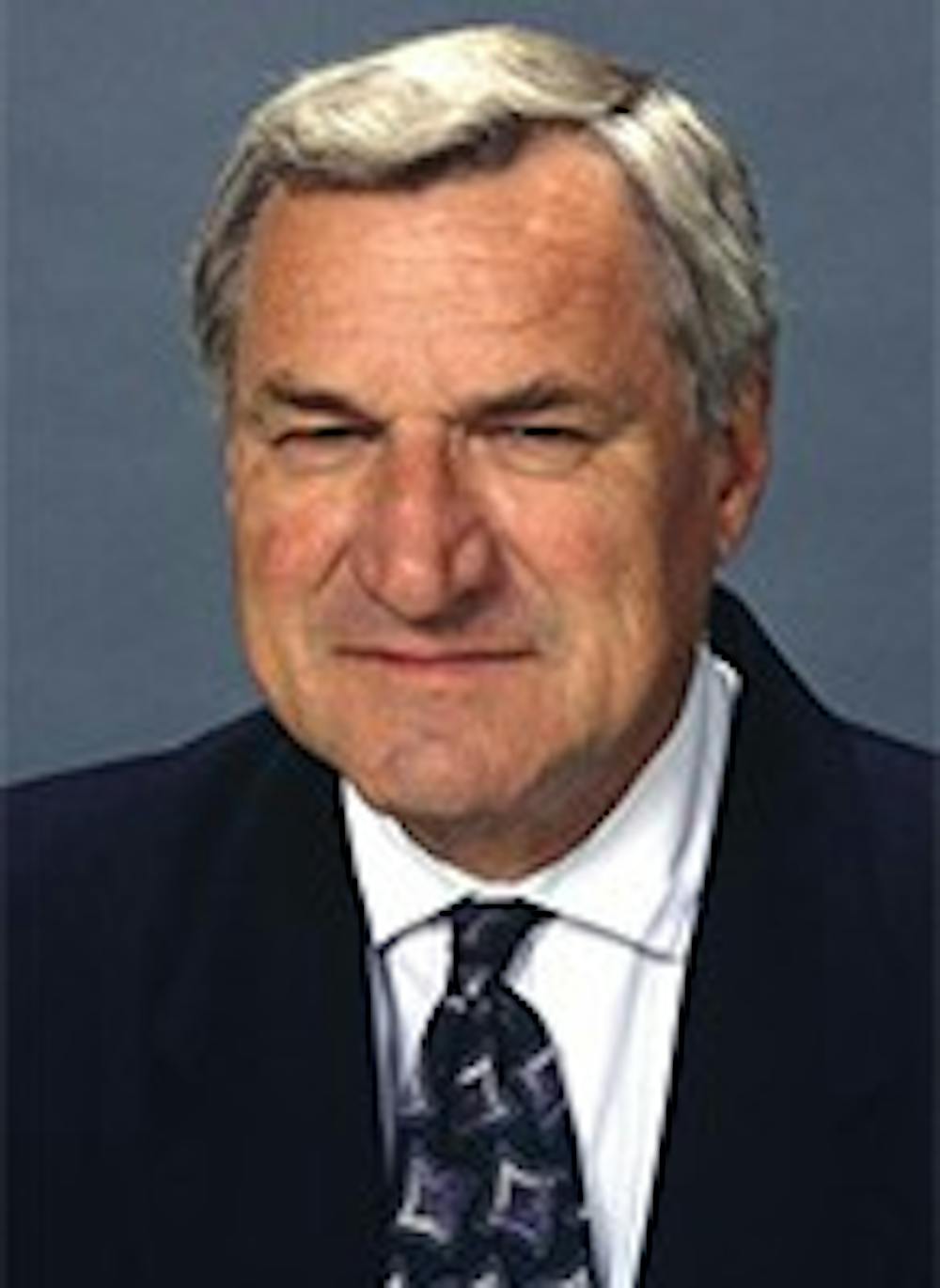It would be easy to quantify former North Carolina basketball coach Dean Smith’s accomplishments in accolades and statistics — 879 wins, two national championships, 13 ACC titles.
But Smith’s reach stretched farther than the confines of the hardwood in Carmichael Arena, and today those achievements will be recognized in Washington, D.C. as Smith is being honored with the Presidential Medal of Freedom — the highest civilian honor given by the White House — in a ceremony at 11 a.m.
Though he led one of the most successful college basketball programs from 1961 until his retirement in 1997, Smith, 82, is most known within the UNC community for his work ethic and treatment of players and fellow coaches.
“He always worked hard,” said former UNC coach Bill Guthridge. “He always plays people on the team. Never did chew us out. Never did swear at us. He was a great person. It’s unfortunate the way things have gone and we hope that things get better. It’s going to be tough.”
The Medal of Freedom recipients — announced in early August — are individuals who, according to the White House, have “made especially meritorious contributions to the security or national interests of the United States, to world peace or to cultural or other significant public or private endeavors.”
Though Smith is one of this year’s 16 recipients — becoming only the second college men’s basketball coach to receive the honor — his advanced progressive neurocognitive disorder affecting his memory will keep him from traveling to the White House for the medal ceremony.
A group of his closest companions, including his wife, Dr. Linnea Smith, children, coach Roy Williams and former assistant Guthridge will accept the award for him.
“I’m very thrilled to have worked for coach Smith,” Williams said recently. “He taught me so much more about people than he did zone defense or man-to-man defense or whatever. I think he’s truly one of the great mentors you could possibly have, and he was a great mentor to me and every player. He truly cared more about all of his players.”
His legacy permeates the Tar Heel community beyond the basketball mecca that carries his name. In 1966, Smith recruited and signed UNC’s first scholarship African-American basketball player, Charlie Scott.




